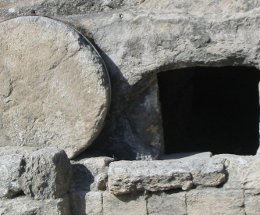Hope for Monday

One morning, about two weeks ago, I woke to the sound of my four-year-old son screaming at the top of his lungs. In a response that has become more instinct than will, I jumped out of bed and ran to find him. He was in the bathroom, standing in front of the toilet, wailing with all the angst and fury a preschooler can muster against the injustice of life. His stuffed rabbit—the one that has been with him since birth, the one that we search for every night before bed, the one that has accompanied us on every road trip, vacation, and doctor’s visit—was floating in the bowl. And in that moment, I remembered what day it was.
It was Monday.
In our culture, Monday holds a certain psychological mystique. It’s the bully of the week. The day that knocks you down and laughs. The day that steals your lunch money. The day that many of us just hope to survive. In the words of Alexander, Monday is a “terrible, horrible, no good, very bad day.”
A lot of this is because Monday is the first day back to normal after the weekend. It’s the first day back to business—the first day back to school lunches and briefcases and time cards. The coming week looms large before us, and instead of being invigorated, we feel helpless. Instead of charging forward, carpe diem, we drag and slide and haul ourselves forward, bleary-eyed and overwhelmed.




Discussion